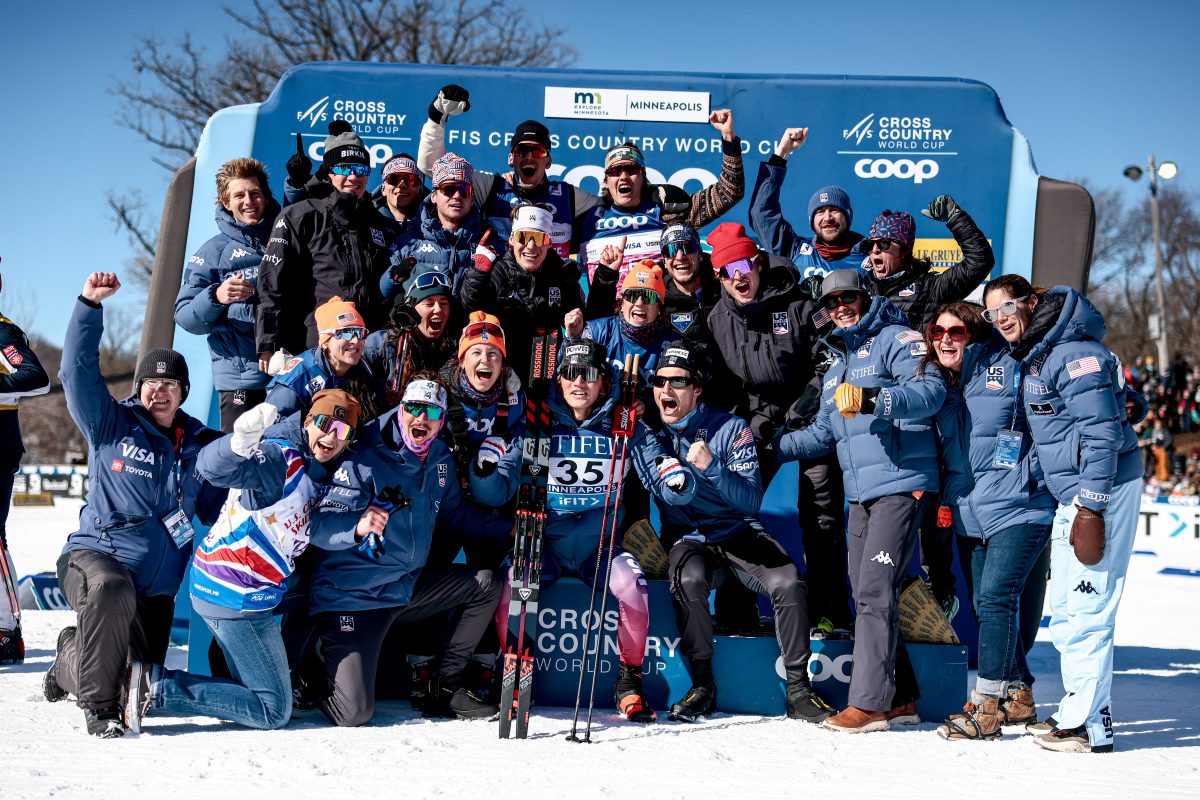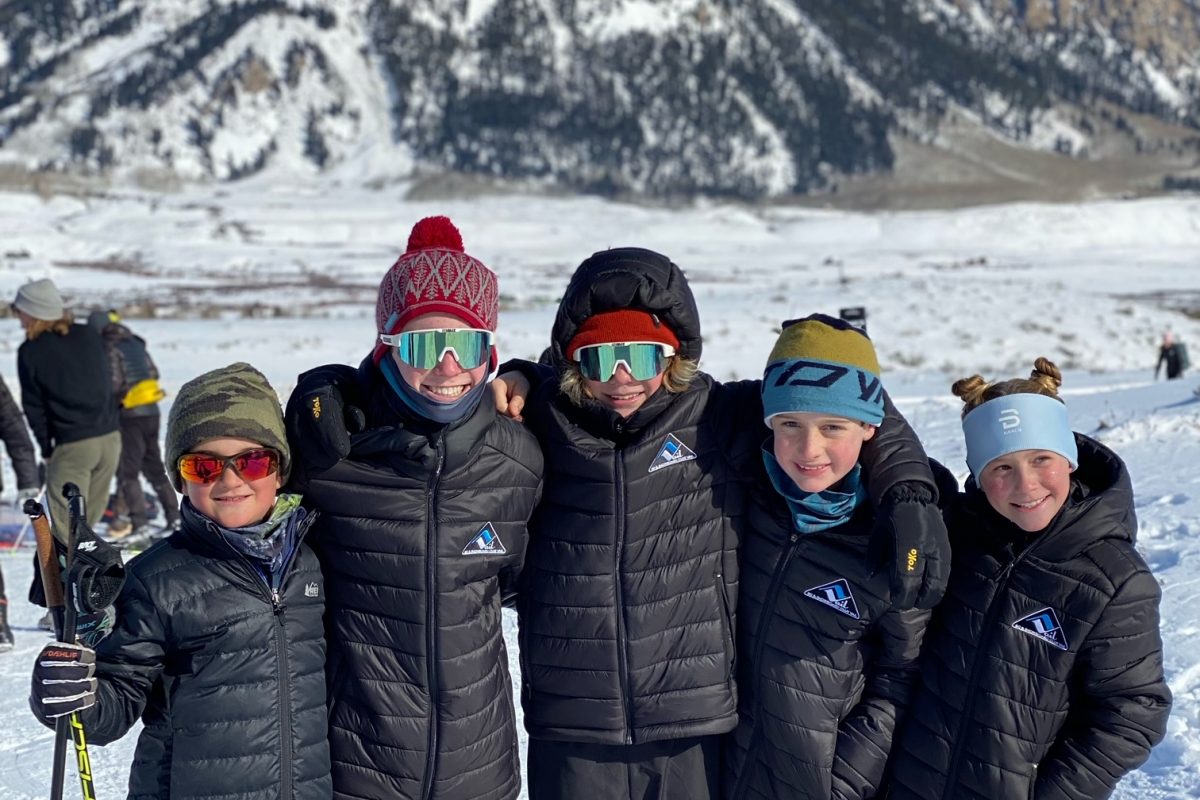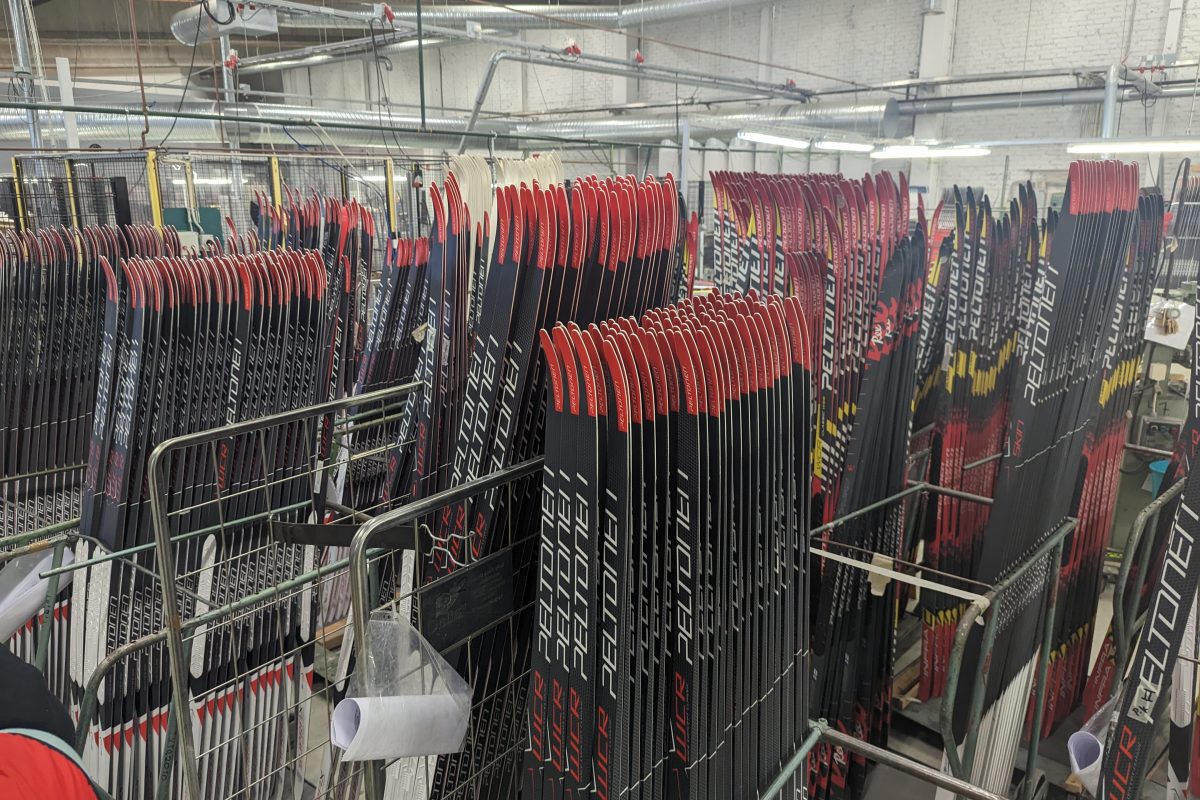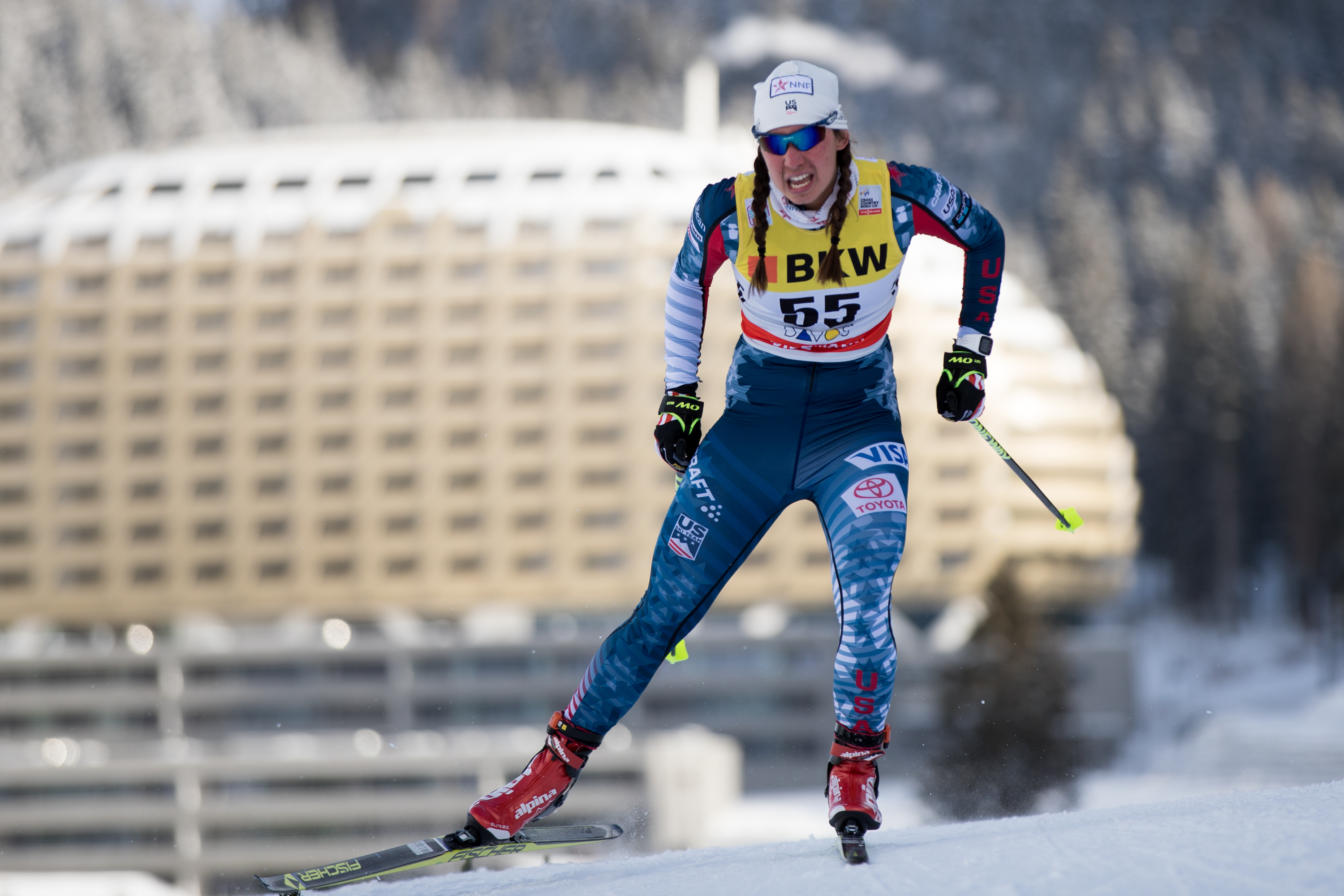
After scoring World Cup points in her first try as part of the U.S. Nations Group roster in Canada last season, Julia Kern is getting a crack at the European World Cup scene this winter.
The 20-year-old Stratton Mountain School (SMS) Elite Team member, Dartmouth College student, and U.S. Ski Team D-teamer has been finding her place, surrounded by teammates who have racked up three sprint podiums so far this season.
“The early season World Cups are definitely really hard, especially in an Olympic year,” Kern said last Saturday after finishing 57th in the skate sprint qualifier in Davos, Switzerland. “Everyone is trying to make the Olympic team. The fields are incredibly deep. Even though Canada was a pretty big field [last year] it’s not quite the same. And early season is a lot different than late season.”
Unlike many of the women she is competing against, Kern is not trying to make her country’s Olympic team. She is a first-year Under-23, and U23 World Championships in Goms, Switzerland, is a logical focus for the year. But there are plenty of other racing opportunities as well from NCAA racing to the Continental Cup.
“Olympics were not really my mindset this season,” she said. “The sprinting team is really strong and I’m really young, and I think my goal is just to keep developing as a skier.”
To that end, she is on the World Cup to learn for later.
“This Period 1 was exactly the purpose of that — to gain experience, and focus on just getting faster and learning,” she said. “My biggest goal was really to learn from the older girls, and experience the World Cup, and learn the courses. Obviously, I wanted to break into the top 30 and that didn’t happen, but hopefully down the road that will. I got to see what it’s like to go on the road with the team.”
Kern also raced in Kuusamo, Finland, in the first week of the World Cup season, scoring an identical result in the classic sprint before placing 74th in the 10 k classic and 73rd in the overall minitour after a 10 k skate pursuit.
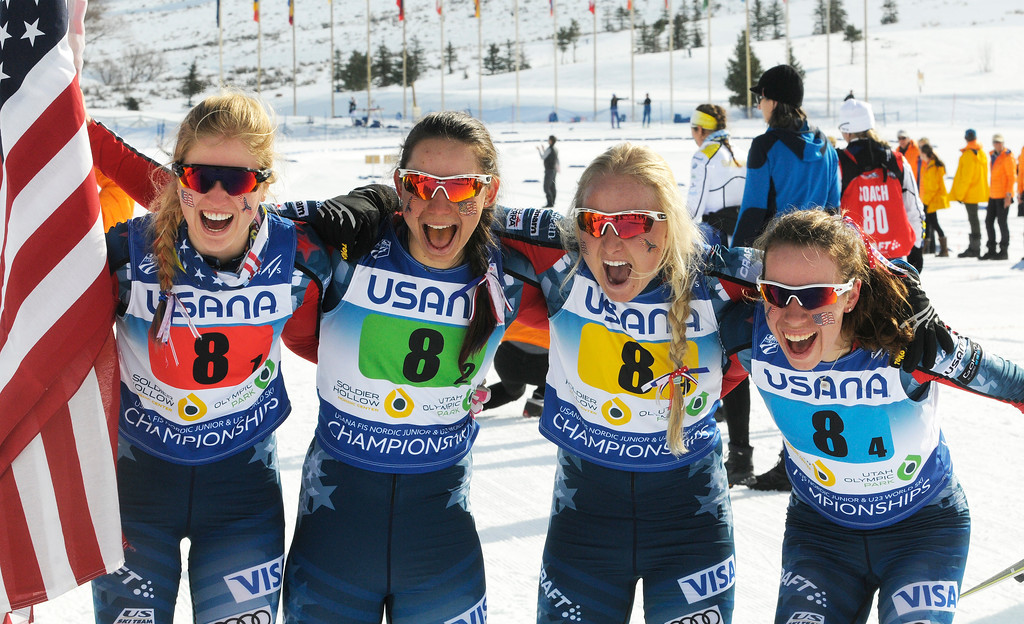
“Yes, Julia scored points in Canada last year,” SMS Elite Team Head Coach Pat O’Brien wrote in an email. “Those were deep fields of athletes, but compared to period one it is a different game. I was never expecting [her] to blow it out of the park.”
Kern is the youngest athlete on the U.S. Ski Team’s World Cup roster this year, and one of the youngest in a few years. That inevitably brings up discussions of whether such young athletes should be sent to skiing’s highest-level competitions.
According to O’Brien, such familiarization is exactly what is needed if Kern is going to be a successful World Cup racer in the future.
“The simple reality is that Supertour does not properly prepare an athlete for World Cup racing,” he explained. “A four-minute effort on slow natural snow at 7,000 feet doesn’t get us a sprint qualifier in Davos or Kuusamo. So part of the game is figuring out the venues, figuring out what is required to do well there. I would rather have a younger athletes start hard and blow up than figure out how to nurse their way around a long slow course and never be able to qualify at the top level of our sport. It’s a little tricky because it’s too quick and easy to draw assumptions and conclusions in this sport.”
Kern is definitely learning the speed that is required for World Cup sprint success.
“In a big field to start off the season, it’s a good way to get in the mind of, ‘you’ve gotta give it your all’,” she said. “There’s no 99 percent out there.”
After some injuries this summer, she doesn’t feel like her upper body strength is 100 percent. But O’Brien said that Kern’s fitness is actually excellent.

“Obviously everyone has personal struggles in the sport, and for her, staying healthy and injury free is a big one,” he wrote. “She made a tremendous step forward in her fitness BECAUSE of an injury this summer. It was a lot of lower body exercises and running, but she was smart balancing her training so that it wouldn’t put her over the edge… The goal from the start has been to bring her into the season with less injuries and better baseline capacity than other years, and to continue to improve on stability year to year.”
Starting the season on the World Cup actually helps with that in some ways, he believed.
“One of the other nice things about World Cup is better accessibility of physiotherapy and body care, as well as reliable snow access and ski service,” he wrote. “All of these are really important things that tend to be lacking while following the SuperTour.”
Still, it can be a mental challenge to go up against the best in the world on their home turf.
“You know, last season, every race I got a little better,” Kern said. “Usually I probably peak in the last weekend, which means, awesome, but frustrating. So I think when I’m in the US, I usually didn’t try to peak for the early races. This year, I was hoping to be in a little better shape early season, but given injuries, it just didn’t happen.”
For now, Kern is done with her World Cup tour and will be racing at Continental Cups in Austria.
“A lot of the sprinters [will be there], so that’ll be fun — to take a little step down, even though its quite competitive as well,” she said. “My whole family is coming to watch because we spend Christmas in Germany. So it will be nice to do the weekend racing at a little bit of a lower level. To be a little more comfortable.”
Chelsea Little
Chelsea Little is FasterSkier's Editor-At-Large. A former racer at Ford Sayre, Dartmouth College and the Craftsbury Green Racing Project, she is a PhD candidate in aquatic ecology in the @Altermatt_lab at Eawag, the Swiss Federal Institute of Aquatic Science and Technology in Zurich, Switzerland. You can follow her on twitter @ChelskiLittle.

